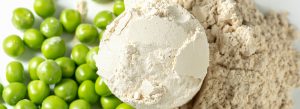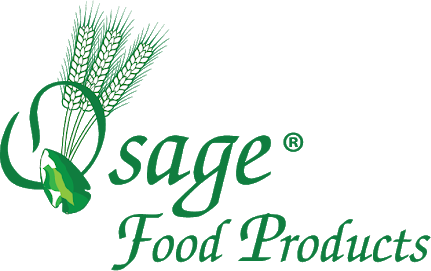Protein has transcended its image as a shake-based beverage only for bodybuilders to a healthy supplemental ingredient in various food and beverage applications. These days, you can easily access protein in bars, snacks, heat and eat meals, and ready-to-drink beverages.
Whey protein has long been the favored choice for the food and beverage industry to add to its products. However, in recent years plant-based proteins have been increasing their market share. Much of this has to do with a cultural shift away from animal-based products toward alternative proteins sourced from legumes, grains, nuts, soy, and seeds.
While the availability of plant protein offers food manufacturers more diverse choices for their consumers, which one is better for their products? Here’s a quick comparison of the issues that matter most to food producers.
Which Protein Offers Better Nutrition?
When you get right down to it, your customers want the best nutrition for their money. Whey protein sourced from dairy, meat, fish, eggs, and poultry scores high in nutritional value as it contains all nine essential amino acids required for building strength, muscle recovery, heart health support, and more.
Plant-based protein lacks many of the nutritional elements that whey offers, however, research has indicated that plant protein products can also contain a high amount of heavy metals. A 2018 study by the Clean Lab Project discovered that 40% of 134 plant-based protein brands tested positive for high amounts of toxic elements, with 75% having a high quantity of lead. In addition, plant proteins certified to be “organic” were found to contain double the amount of lead as non-organic and other toxic elements such as mercury, cadmium, and arsenic.
The report recommended that food manufacturers insist on independent lab testing on plant proteins to detect toxic elements that may be present.
How Does Each Protein Perform Right Off The Shelf?
Protein beverages need to look clean and healthy to make it off the shelf and into the shopping basket. Nothing will turn your customer off more than protein beverages that look viscous, turbid, or contain sediments that have settled to the bottom of the bottle.
High-quality whey protein beverages have solved these issues, maintaining a healthy shelf appearance as well as great taste. Plant-based proteins can often appear turbid or have an earthy flavor that can conflict with masking agents. However, the plant protein taste association with the earth could boost the product’s profile in the eyes of plant-based food advocates, increasing sales.
READ MORE : Promoting Protein Rich Food Products To Help Beat Quarantine 15
Does Whey Cost More Than Plant Protein?
Price is another crucial consideration for food manufacturers when sourcing protein for their products. In this case, whey protein costs less than plant-based proteins. The price difference mainly stems from whey being easier to harvest and produce. As a by-product of the dairy industry, it’s relatively easy and inexpensive for suppliers to procure whey and turn it into powder.
In contrast, plants can take several months to grow and mature before they’re harvested. Also, unlike whey, there is no “single source” of plant proteins or streamlined production methods, creating a more fractured market. You also have to add more doses of plant protein to your products to match the amino acid and nutrient punch of whey.
However, many strong advocates of plant-based protein will pay a premium for products that align with their nutritional needs and personal beliefs, which will help sustain and grow the industry over time.
Is Whey Or Plant Protein Easier To Digest?
Many consumers have concerns about protein product digestibility, citing worries about stomach pain, gas, and bloating. These concerns allow manufacturers to provide clean labels such as “Easy to Digest” to help consumers make informed choices.
But which protein type is easier to digest?
Many experts use a specific biological value to determine how much protein you consume is absorbed and not eliminated through waste.
The biological value of protein food is assessed by calculating its protein digestibility-corrected amino acid score, or PDCASS. Proteins with a higher amount of nitrogen retained than eliminated are determined to have a higher biological value. In other words, a product with a higher biological value is easier to digest than protein products with a lower value.
Overall, whey protein has a higher biological value than its plant-based counterparts. However, consumers can offset digestive upset with plant proteins by measuring their total protein intake and pairing suitable plant proteins together.
Whey vs. Plant Protein: The Bottom Line
Food manufacturers can’t go wrong with whey products due to their solubility, performance, and price. However, they should also offer a selection of plant-based protein products to stay aligned with the increasing popularity of these products.
Ultimately, consumers expect high-quality proteins regardless of the source. As long as food manufacturers meet clean label expectations, they’ll be able to make informed choices on whether to go with traditional whey proteins or give plant-based products a try. There will always be a market for both, even when the next great protein innovation comes along.
If you have any questions about our high-quality dairy or plant-based ingredients, get in touch with us today. We’d be happy to answer all of your questions and send you a free sample for your inspection.





